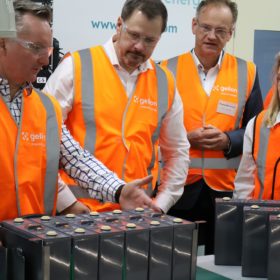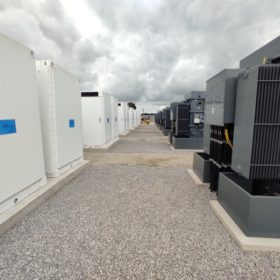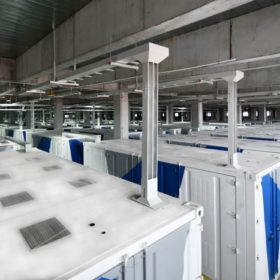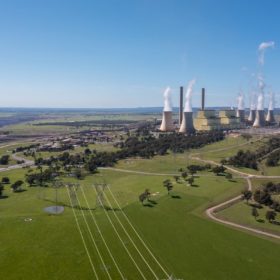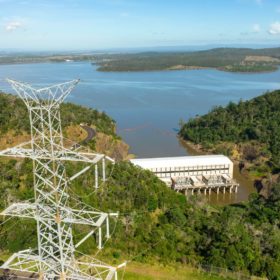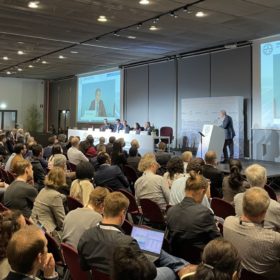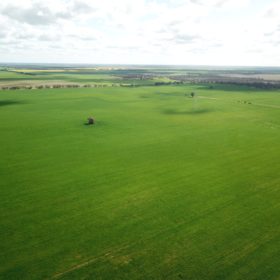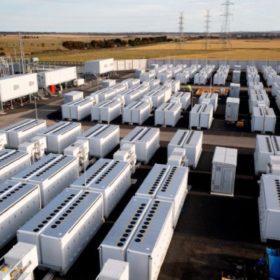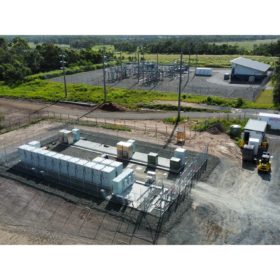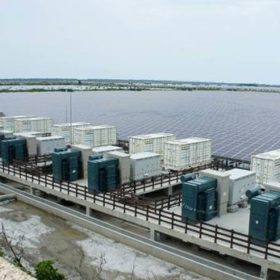Gelion unveils battery manufacturing facility in Sydney
Australia’s first zinc-bromide battery production line has commenced operations with Gelion Technologies launching a manufacturing facility in Western Sydney capable of producing 2 MWh of batteries annually.
FRV announces plans for Australian first big battery
Fotowatio Renewable Ventures has unveiled plans to deliver its first standalone battery energy storage system in Australia, announcing it will build a 100 MW/200 MWh big battery in Victoria’s southwest after securing $7 million in funding from the state government.
China connects world’s largest redox flow battery system to grid
Dalian Rongke Power has connected a 100 MW redox flow battery storage system to the grid in Dalian, China. It will start operating in mid-October and will eventually be scaled up to 200 MW. The vanadium redox flow battery technology was developed by a division of the Chinese Academy of Sciences.
AGL Energy accelerates plan to abandon coal completely
Australia’s largest electricity generator AGL Energy is accelerating its exit from coal, announcing it will shut down the Loy Yang A power plant in Victoria’s Latrobe Valley a decade earlier than planned, with the company aiming to abandon coal completely by 2035.
Queensland announces ‘biggest pumped hydro scheme in the world’
Queensland Premier Annastacia Palaszczuk has launched a $62 billion energy and jobs plan, which includes the biggest pumped hydro scheme in the world. The government is also planning to convert publicly owned coal-fired power stations into clean energy hubs from 2027.
‘The first terawatt of solar PV installed globally took some 70 years to achieve, while the second will likely take only three’
Leading solar researchers from around the world are meeting for the first time in four years in Milan, Italy, for the 8th World Conference on Photovoltaic Energy Conversion (WCPEC-8). The first morning has seen prestigious awards bestowed on two scientific leaders and inspirational discussions as to how the “second terawatt” of solar can be installed globally in just a handful of years.
Edify wins government grid forming battery contract as Victoria pushes storage
Edify Energy has been awarded the contract to deliver a grid forming, lithium-ion big battery in Victoria, which will provide system support services for Victoria Murray River Renewable Energy Zone and contribute to the state’s new storage targets.
Victoria targets 6.3 GW of renewable storage by 2035
Victoria’s Labor government this morning announced it will target 2.6 GW of renewable energy storage capacity by 2030, and 6.3 GW by 2035.
Queensland charges ahead with big battery rollout
A new $8 million large-scale, network-connected battery at Tanby on Queensland’s Capricorn Coast is expected to help facilitate the continued integration of renewables, including rooftop solar PV, into the state’s energy system.
Taiwan’s largest battery comes online
United Renewable Energy has energised a 15 MW/15 MWh battery energy storage system connected to a 150 MW solar park located near the southern Taiwanese city of Tainan.
